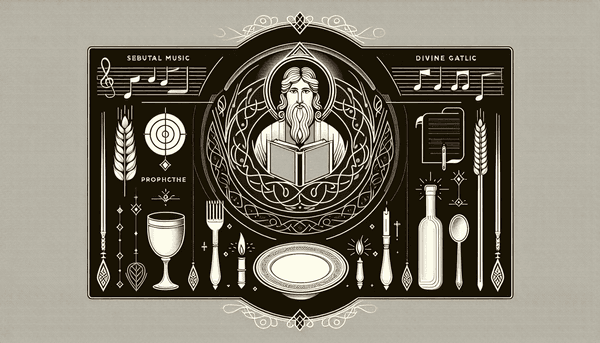The Story of Cain and Abel: Lessons on Offerings and Faith
The Genesis narrative of Cain and Abel provides a stirring exploration of the nature of offerings and the role of faith. God's acceptance of Abel's offering over Cain's (Genesis 4:3-5) suggests that the heart's posture is fundamental to worship. Abel's offering, brought in faith, is commended in the New Testament as well, where it is said that 'by faith Abel offered to God a more acceptable sacrifice than Cain' (Hebrews 11:4). This account serves as a powerful reminder of the perils of jealousy and the importance of community as underscored in the divine tapestry of friendship and fellowship in faith. Cain's unchecked emotions led to a tragic outcome, urging believers to cultivate sincerity in their worship and to heed the call for self-control and forgiveness, echoing the later exhortations of the apostles (Ephesians 4:26-27; Matthew 5:23-24).
FAQ
Q: What is the main message of the Book of Hebrews?
A: The main message of the Book of Hebrews is the supremacy of Jesus Christ as the Son of God and the ultimate High Priest, who is superior to angels and the mediator of a better covenant. It emphasizes the importance of faith and perseverance for believers facing trials and persecutions.
Q: How can we apply Mark 16:15 to our daily lives?
A: We can apply Mark 16:15 by sharing the Gospel through our words and actions, showing Christ-like compassion, participating in outreach programs, building relationships with diverse individuals, and living a life that reflects the teachings of Jesus.
Q: Why was Cain's offering rejected in the story of Cain and Abel?
A: Cain's offering is often thought to have been rejected because it was not given with the same sincerity and faith as Abel's. The lack of right attitude or adherence to God's instructions may have been factors in its rejection.
Q: What can we learn from 2 Corinthians 4 about dealing with challenges?
A: 2 Corinthians 4 teaches that our earthly struggles are temporary and pale in comparison to the eternal glory that awaits us. It encourages believers to focus on the unseen, eternal realities, and to find strength in God's power, even when faced with difficulties.






